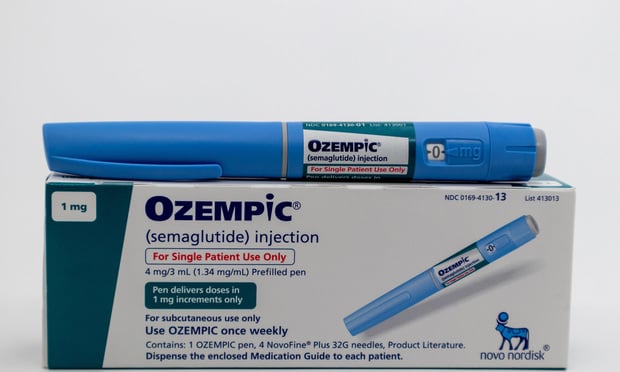(Bloomberg) — Almost eight months after President DonaldTrump took office and promised to immediately repeal Obamacare,Republican senators are instead developing a small package ofchanges to help the health law rather than end it.
|Senator Lamar Alexander, the Tennessee Republican taking thelead on some of the efforts, said Tuesday that he wants anObamacare package to include money for insurers to defraylow-income Americans’ health costs, as well as flexibility forstates to decide how they cover their citizens under the law.
|“This hearing is about taking one small step, a small step on abig issue which has been locked in a partisan political stalematefor seven years,” Alexander said in prepared remarks Wednesday at ahearing by the Senate Health, Education, Labor and Pensionscommittee.
|The new, more modest plan is a sharp change of direction afterRepublicans’ efforts to repeal the Affordable Care Act failedearlier this summer. In another shift, GOP lawmakers are making aneffort to get Democrats to join them. Alexander said Wednesday thatmembers of both parties will have to agree to proposals they mightnot be comfortable with.
|“Democrats will have to agree to something — moreflexibility for states — that some are reluctant to support.And Republicans will have to agree to something — additionalfunding through the Affordable Care Act — that some arereluctant to support,” he said.
|Timeline for bill
Alexander said his hope is to pass a bill by the end of themonth. The Senate is just returned from its summer break, and isconvening a series of hearings on the Affordable Care Act. Theirefforts are up against a stacked legislative agenda, however.Congress is looking at bills on hurricane relief, funding thegovernment beyond September, raising the debt ceiling and renewingthe Children’s Health Insurance Program.
|Related: ACAspecialty drug prices remain problem for consumers
|Senator Susan Collins, the Maine Republican who was one of threevotes against repealing Obamacare in July, dooming the GOP effort,called the hearings -- which Republicans declined to hold duringtheir repeal effort -- a promising first step.
|“They will help us come up with a solution to help furtherstabilize the markets and correct a few, not all, but a few of theflaws in the ACA,” Collins said Tuesday.
|It’s likely, said Collins, that some of those efforts could becombined into a single bill in order to get it through bothchambers. Yet other items, such as debate over tax reform,immigration, and investigations into the Trump administration andthe election, could become obstacles.
|Insurance commissioners
The Senate committee hearing Wednesday features five stateinsurance commissioners from Tennessee, Pennsylvania, Alaska,Washington and Oklahoma. Most of the commissioners, in preparedremarks, strongly backed funding payments that go to healthinsurers to reduce low-income patients’ out-of-pocket medicalcosts. Known as cost-sharing reduction subsidies, or CSRs, theTrump administration has threatened to stop making thepayments.
|“The CSR funding issue is the single most critical issue thatyou can address to help stabilize insurance markets for 2018 andpotentially bring down costs,” Tennessee’s insurance regulatorJulie Mix McPeak said in prepared testimony.
|As Congress debates changes to the law, health insurers andstate regulators are putting the finishing touches on how it willoperate and what health coverage will cost next year. Insurancecompanies were required to submit their 2018 premiums to regulatorsin many states on Sept. 5, though there’s some room for changes ifCongress takes action.
|McPeak said carriers in her state could reduce rates if Congressdecided to fund the cost-sharing reduction payments by about Sept.20. BlueCross BlueShield of Tennessee and Cigna Corp. told stateregulators that 14 percentage points of their overall 21 percentand 42 percent average rate increase, respectively, was due touncertainty around the payments.
|Other proposals
Some of the insurance commissioners also called for funds tohelp insurers offset the costs of abnormally high claims, a conceptknown as reinsurance, and backed more flexibility.
|The insurance commissioners also called for action onpharmaceutical costs, and Trump has previously promised to bringdown “astronomical” drug prices though hasn’t taken any majoraction.
|“We need to have a serious national conversation about how wecan moderate the unsustainable growth in health care costs,especially in areas experiencing astronomical growth in cost likewe currently see with pharmaceutical costs,” Teresa Miller, actingsecretary of Pennsylvania’s Depart of Human Services and formerinsurance commissioner for the state, said in prepared remarks.
|Copyright 2018 Bloomberg. All rightsreserved. This material may not be published, broadcast, rewritten,or redistributed.
Complete your profile to continue reading and get FREE access to BenefitsPRO, part of your ALM digital membership.
Your access to unlimited BenefitsPRO content isn’t changing.
Once you are an ALM digital member, you’ll receive:
- Critical BenefitsPRO information including cutting edge post-reform success strategies, access to educational webcasts and videos, resources from industry leaders, and informative Newsletters.
- Exclusive discounts on ALM, BenefitsPRO magazine and BenefitsPRO.com events
- Access to other award-winning ALM websites including ThinkAdvisor.com and Law.com
Already have an account? Sign In
© 2024 ALM Global, LLC, All Rights Reserved. Request academic re-use from www.copyright.com. All other uses, submit a request to [email protected]. For more information visit Asset & Logo Licensing.







